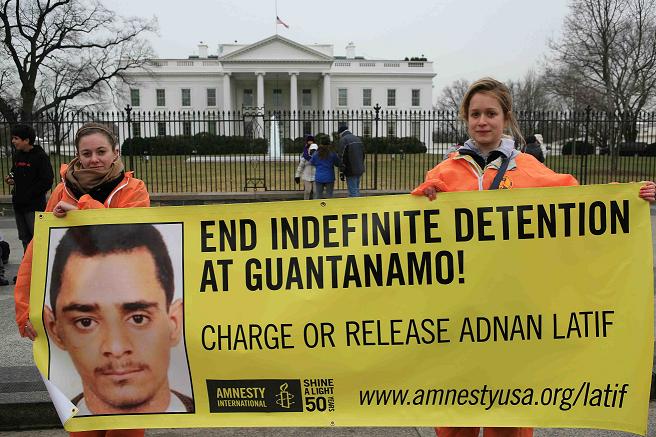
On Wednesday, a U.S. judge ruled that a provision in the 2012 National Defense Authorization Act (NDAA) that authorizes indefinite detention is unconstitutional, and blocked the government from using the provision to hold people without charge.
The ruling is a major win for the movement to end indefinite detention, which for over 10 years has been a hallmark of the human rights vaccum at Guantánamo and was codified in U.S. law last year by President Obama and Congress. Shamefully, the Obama administration has appealed.
Why care about indefinite detention?
Imagine you were locked up, accused of—but never charged with—a crime, and denied a fair trial to make your case. Seem farfetched?
That’s exactly what happened to Adnan Latif. He’s the Guantanamo detainee who died Saturday after being held over 10 years without charge—despite a judge’s order that he be released.
What happens next?
The case against indefinite detention in the NDAA–brought by journalist Chris Hedges, Professor Noam Chomsky and others–could go all the way to the Supreme Court. It would be interesting to see how the Court would rule, especially given that opposition to indefinite detention does not divide along party lines.
Protest against the NDAA has brought Republicans and Democrats together, because indefinite detention is a blatant assault on human rights.
And that’s why President Obama and Congress should change course and work together to repeal the detention provisions in the NDAA—Sections 1021 and 1022—and ensure that anyone accused of a crime is charged and fairly tried, or released.
If you agree, then let your Senators know— they’ll be working on the 2013 NDAA later this year: www.amnestyusa.org/ndaa
